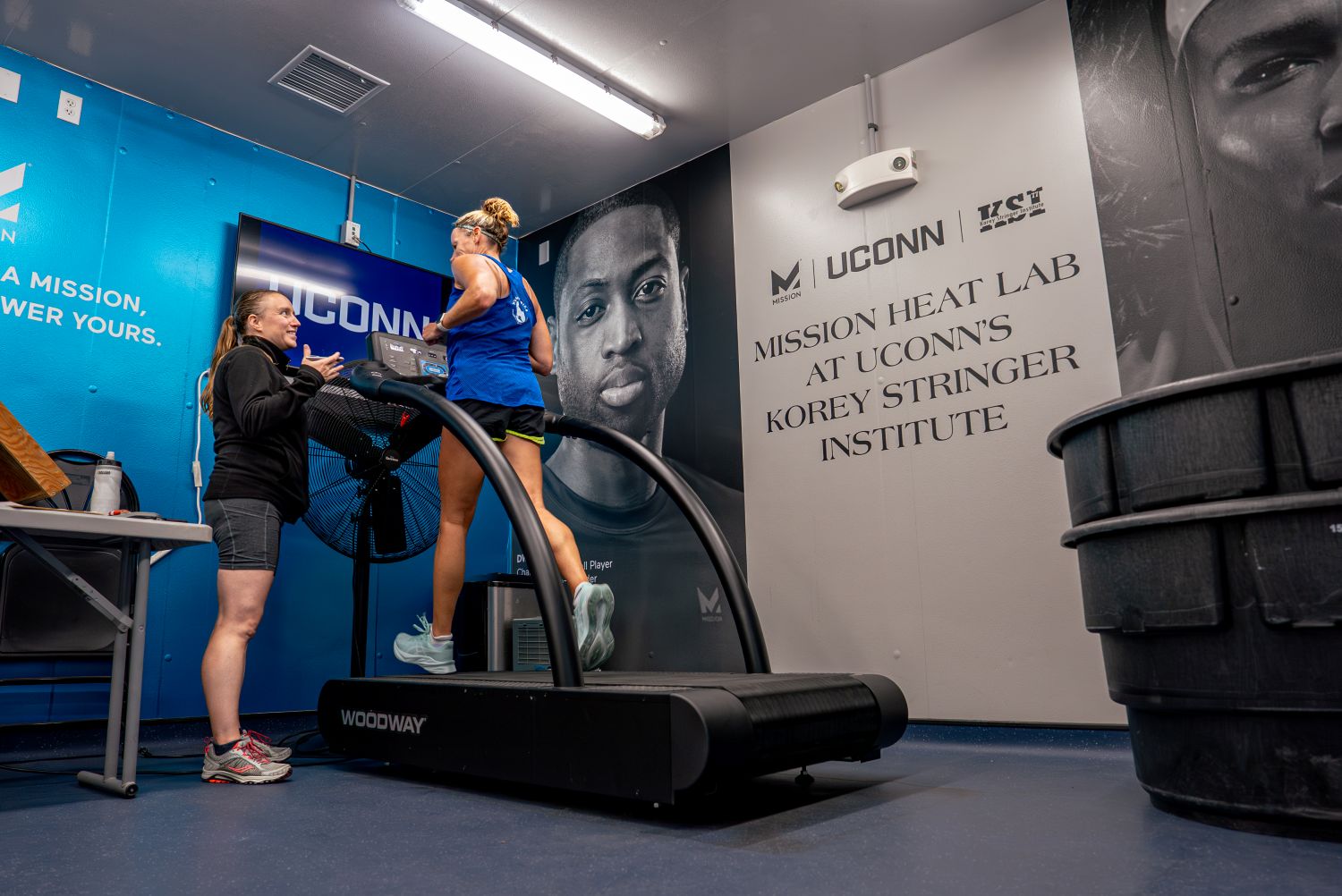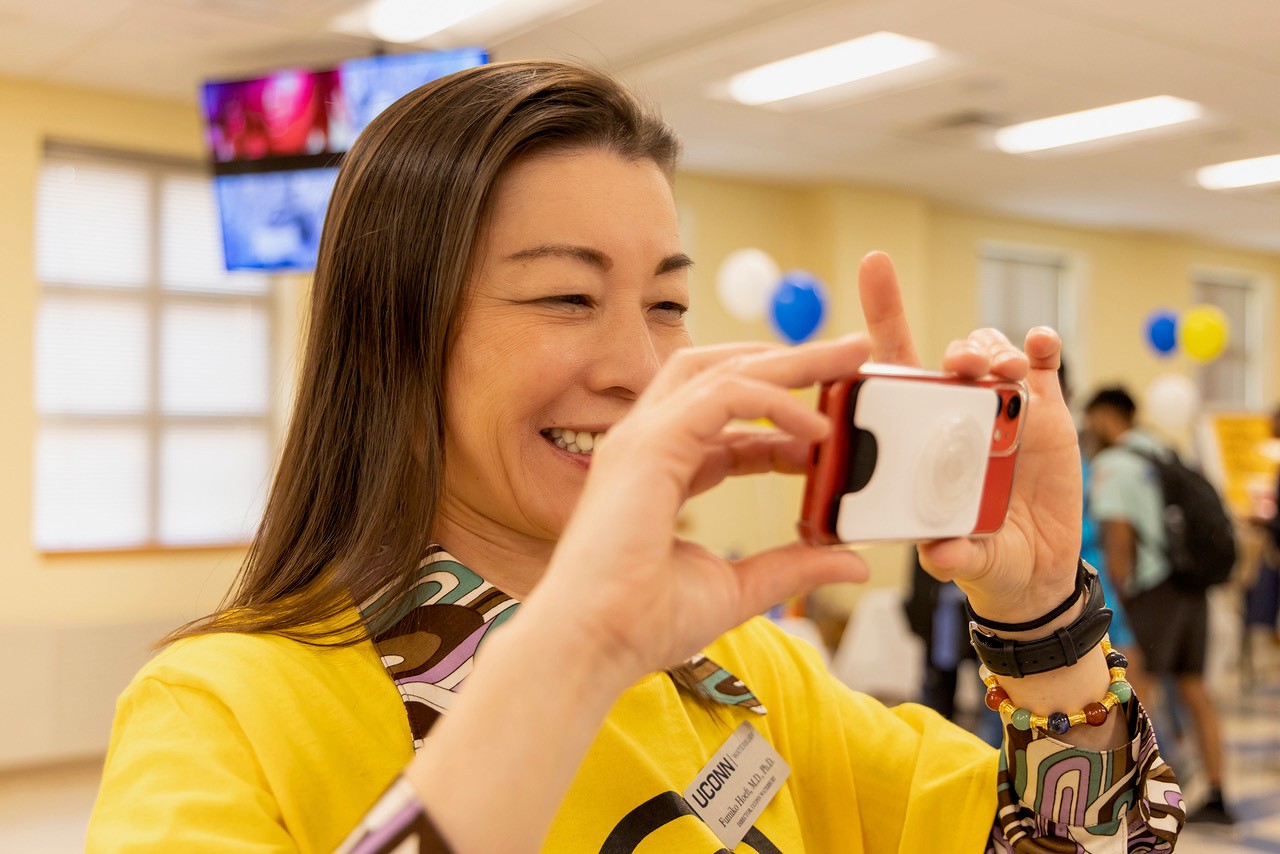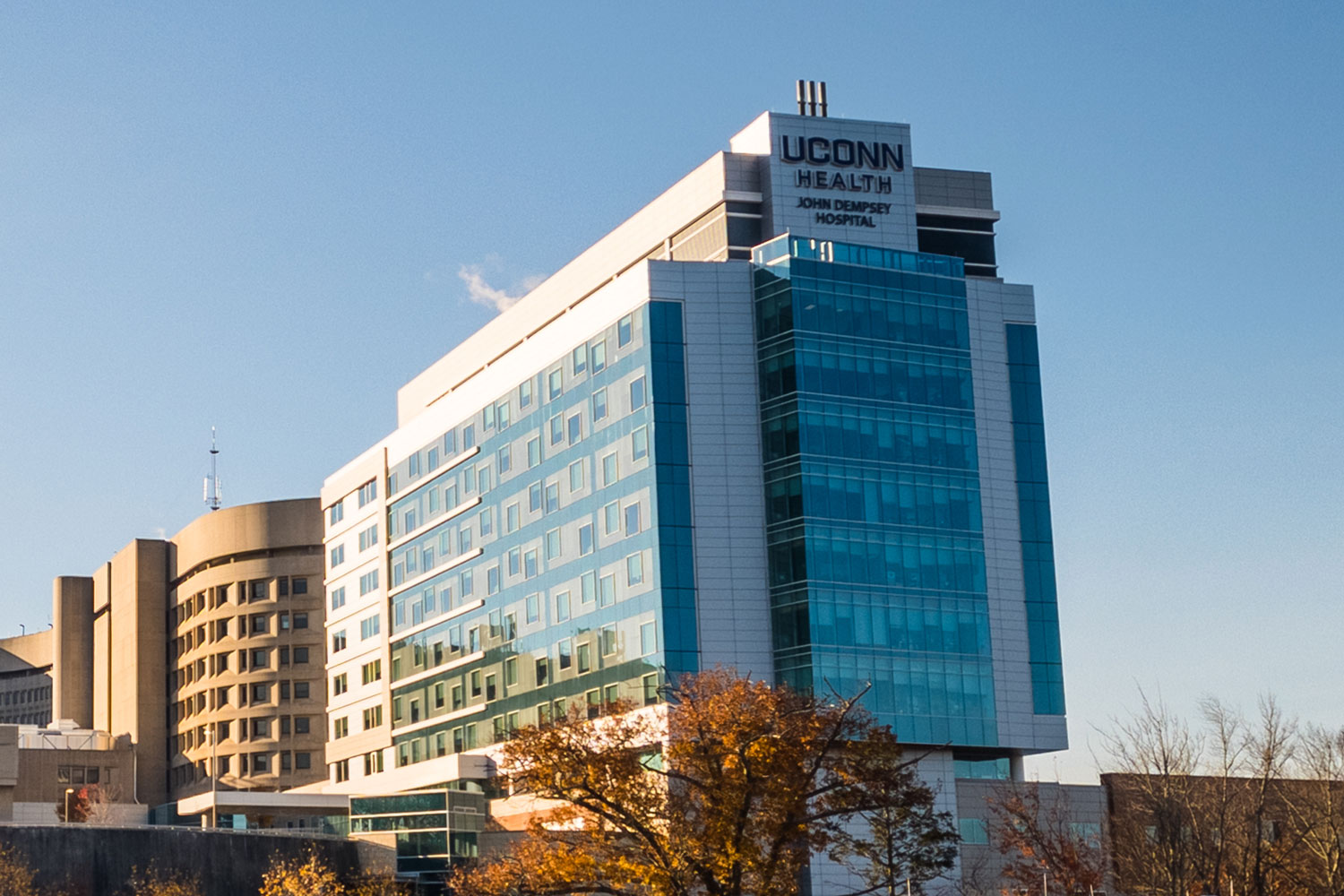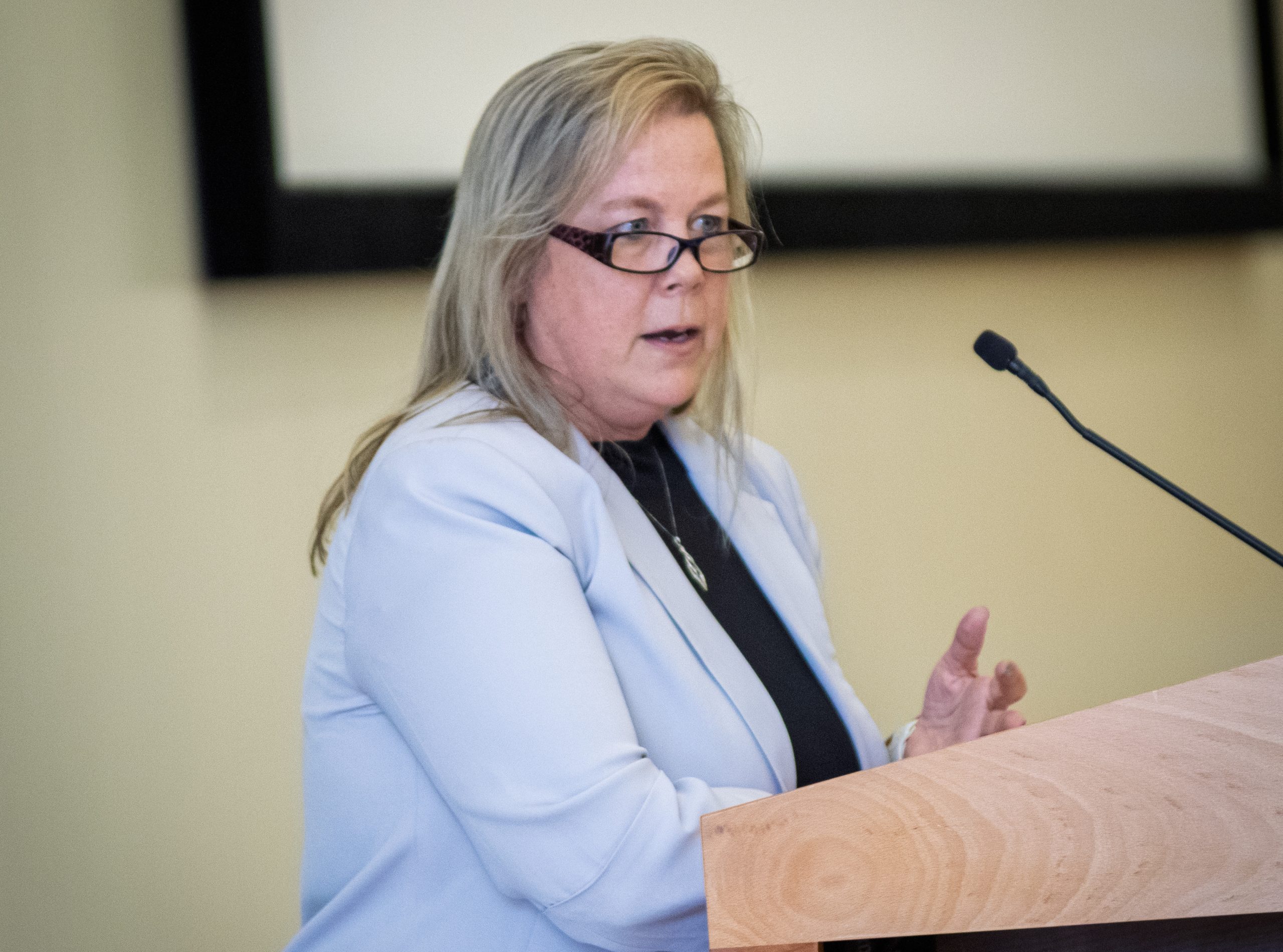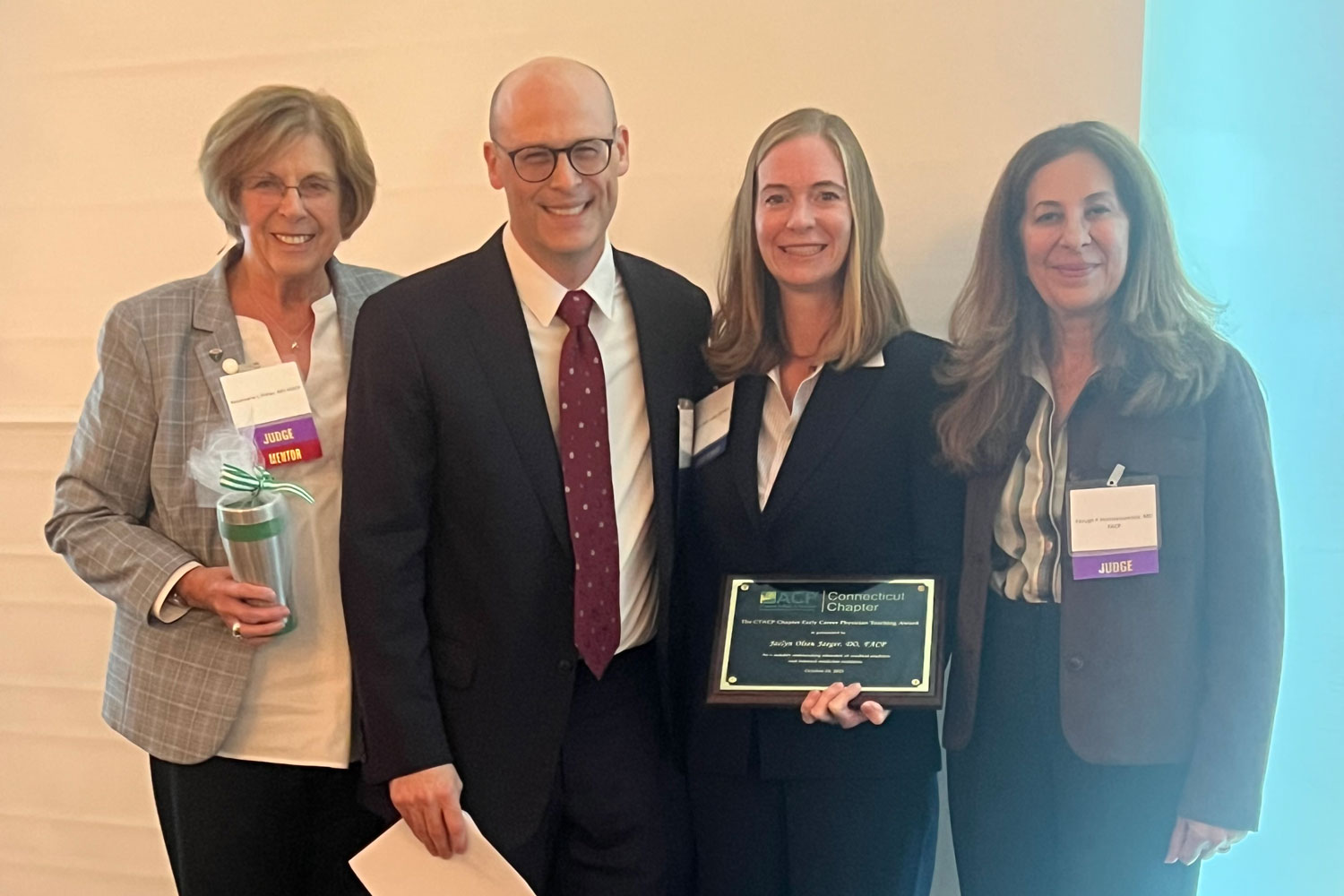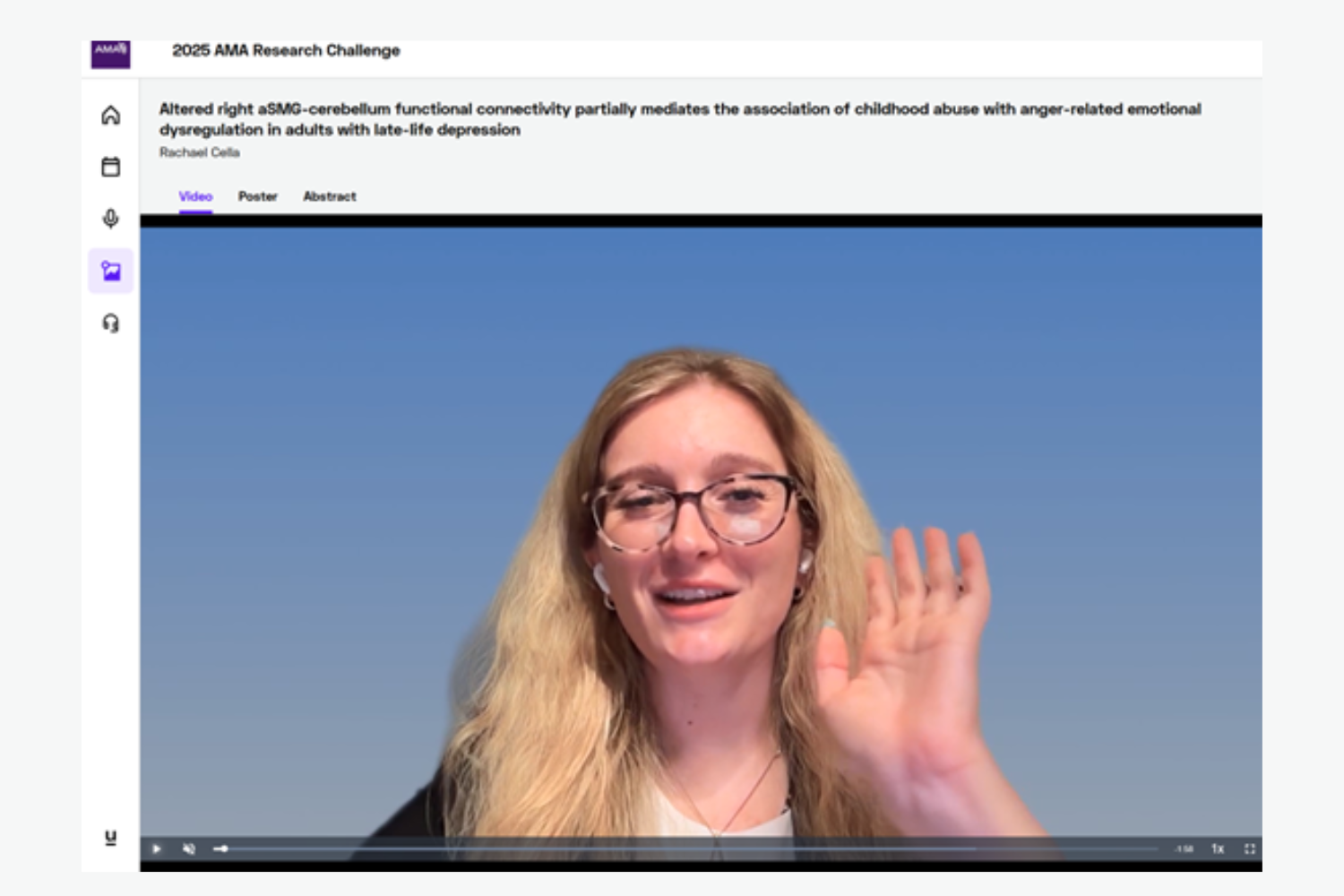Month of Discovery: Undergraduate Researcher Krithika Santhanam
Krithika Santhanam’s ’25 (CLAS) research activities started early on in her time at UConn.
During her freshman year, Santhanam reached out to Caroline Dealy, professor of orthodontics, about working in her lab.
Santhanam spent her first and sophomore years in Dealy’s lab, which researches treatments for osteoarthritis.
“Osteoarthritis is a condition where there’s a spontaneous degeneration of cartilage cells which impacts our joints,” Santhanam says.
There is currently no treatment for osteoarthrosis. That’s why Dealy’s lab is working on finding a way to get cartilage cells to spontaneously regenerate. Santhanam found that when certain BMP ligands, a type of molecule, were removed in mouse models, something caused cartilage cells in their knees to regenerate.
Santhanam had the opportunity to present her findings at the 16th International Conference on Limb Development, Regeneration, and Evolution and the New England Science Symposium at Harvard University.
“The amount of skills that I gained, the confidence that I gained through that opportunity as a freshman,” Santhanam says. “I was able to talk to professional scholars within the field, which was amazing.”
After identifying a new cell population within the cartilage of mice samples, Santhanam continued her work with Dealy through a SURF (Summer Undergraduate Research Find) Award. With the SURF Award, Santhanam dug deeper to determine what was causing the regeneration she had observed in the last step of her project.
“My project proposal was looking at what properties do these new cells have,” Santhanam says. “Because we have no idea what type of cartilage cells these are, what is allowing them to regenerate, what stage of chondrocyte maturation are they in?”
After a long process of trial and error, Santhanam found that the cells matched with a tag called RUNX2, which is related to bone cell differentiation.
Santhanam is now working with Fumilayo Showers, assistant professor of sociology and Africana studies, on a project looking at frontline and non-frontline health care workers during the COVID-19 pandemic in terms of how health care had to change during the pandemic and what we can learn from the emergency.
Santhanam is also currently putting the finishing touches on a documentary project about disability advocacy in South India that she made through the BOLD Scholars program.
Santhanam’s individualized major in health policy and racial disparities has allowed her to take classes in a wide array of subjects including women’s, gender, and sexuality studies and human development and family sciences. In these classes, she learned about harmful patient-provider interactions where individuals with disabilities do not feel heard or lack access to healthcare facilities in the first place.
“This was interesting to me because I feel like when we talk about intersectionality between race, class, gender, and all these things, sometimes we don’t think about disability as one of those social determinants of health,” Santhanam says.
Santhanam went to her parents’ home of Chennai, India to interview people involved in disability advocacy there.
“The differences and cultural stigmas I see when I go back really is something that is not talked about enough,” Santhanam says. “I know individuals with disabilities in India, and I know how that care is different, and I really want people to know that, and I also want people to know the positive strides that have been made in the past 20 years.”
Santhanam interviewed doctors and people involved with advocacy groups, including Dr. Aishwarya Rao, pediatrician, disability rights activist, and the founder of Better World Shelter, a rehabilitation shelter for women with disabilities; Sharada Devi, an assistant professor at the University of Kerala’s Institute of English; and KVJ Sumitra Prasad, founder of SAI Center, which promotes the importance of adults with disabilities living independently through the DORAI Foundation.
Santhanam will screen her documentary at UConn Storrs in January.
Santhanam plans to attend medical school after graduation with the long-term goal of opening a clinic focused on women’s health.
During her sophomore year, Santhanam participated in the UConn Health Leaders program where she screened patients for social determinants of health. She quickly realized that in Connecticut there are massive disparities in people’s ability to access healthcare, like healthy food and transportation that support wellbeing.
“That experience really was eye-opening,” Santhanam says. “Doing that program really made me feel like this is my calling, and really sent me into wanting to see what internal medicine was like. In my opinion, I believe primary care is the first place and the most important place where you can make an impact on someone’s health outcomes.”
Latest UConn Today
- How’s Your Hydration? A New Tool from UConn Researchers Helps Athletes Find OutSynthesizing data from 16 human field studies, a new tool from UConn's Korey Stringer Institute aims to help athletes and the general public stay hydrated and healthy
- UConn Waterbury Dean Fumiko Hoeft Issues a Challenge, Makes Campaign Match in ‘Because of UConn’ Campaign'Student success is University success. And student success is also success for the future of our world'
- UConn Health’s Among ‘America’s Best-in-State Hospitals’John Dempsey Hospital earns Newsweek distinction 3 years running
- Driving Passion: Erika Lindeberg, Jacobs Engineering Group Inc.Academy of Distinguished Engineers inductee discusses professional and personal motivations, how she was influenced by her studies at UConn, and the importance of mentoring
- UConn Health’s Dr. Jaclyn Olsen Jaeger Recognized as Outstanding EducatorEarly Career Physician Teaching Award from Connecticut Chapter of the American College of Physicians
- UConn Medical Students Compete in Research Challenge of American Medical AssociationEight UConn School of Medicine students qualified for and competed in the exciting, national 2025 AMA Research Challenge to share their innovative research findings in virtual poster presentations Oct. 22-23.








